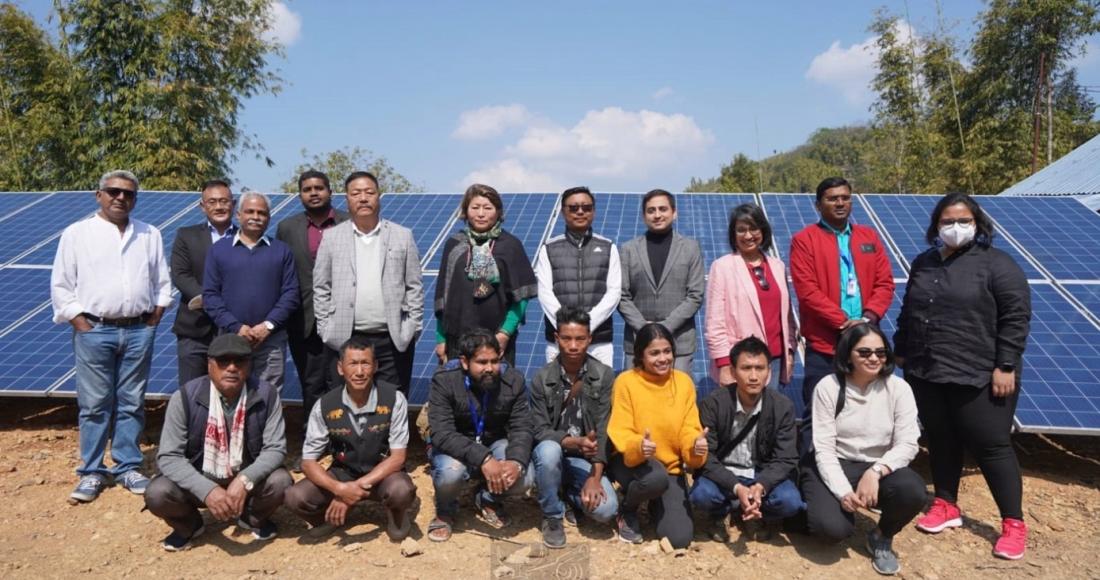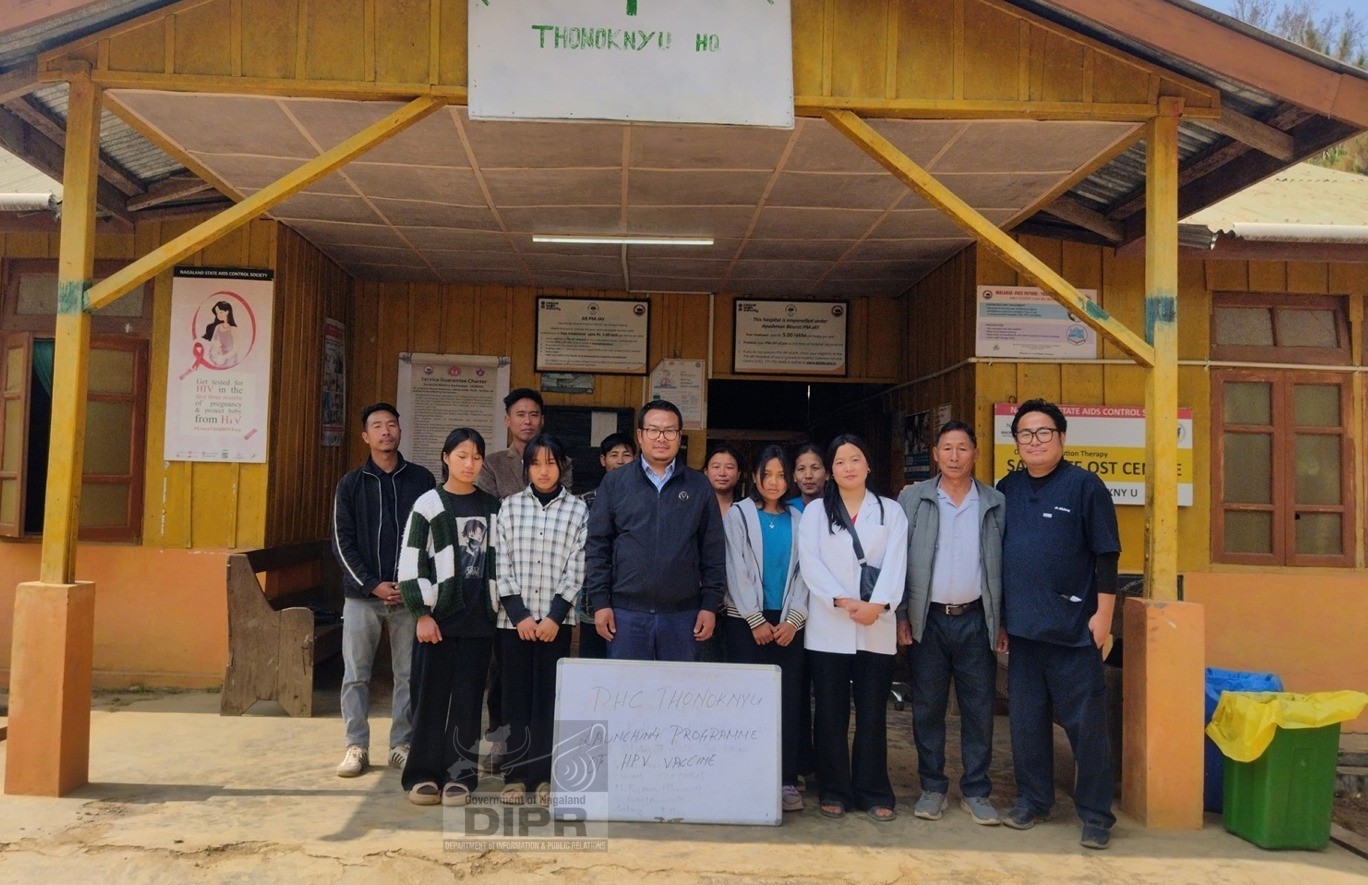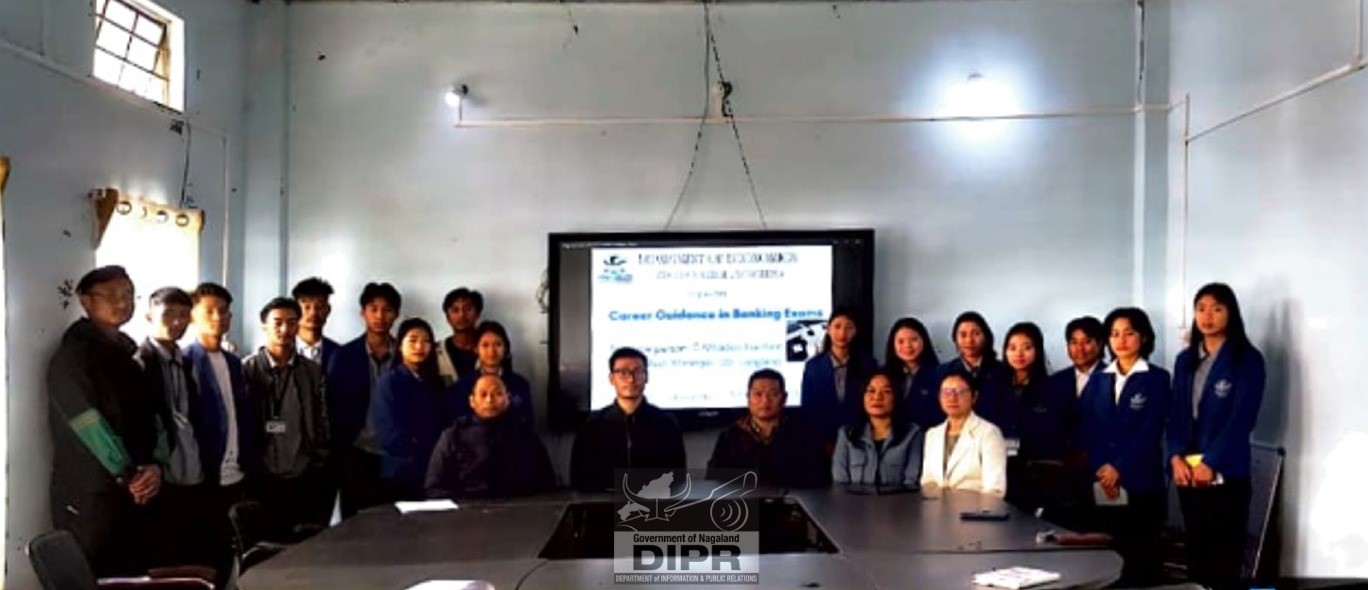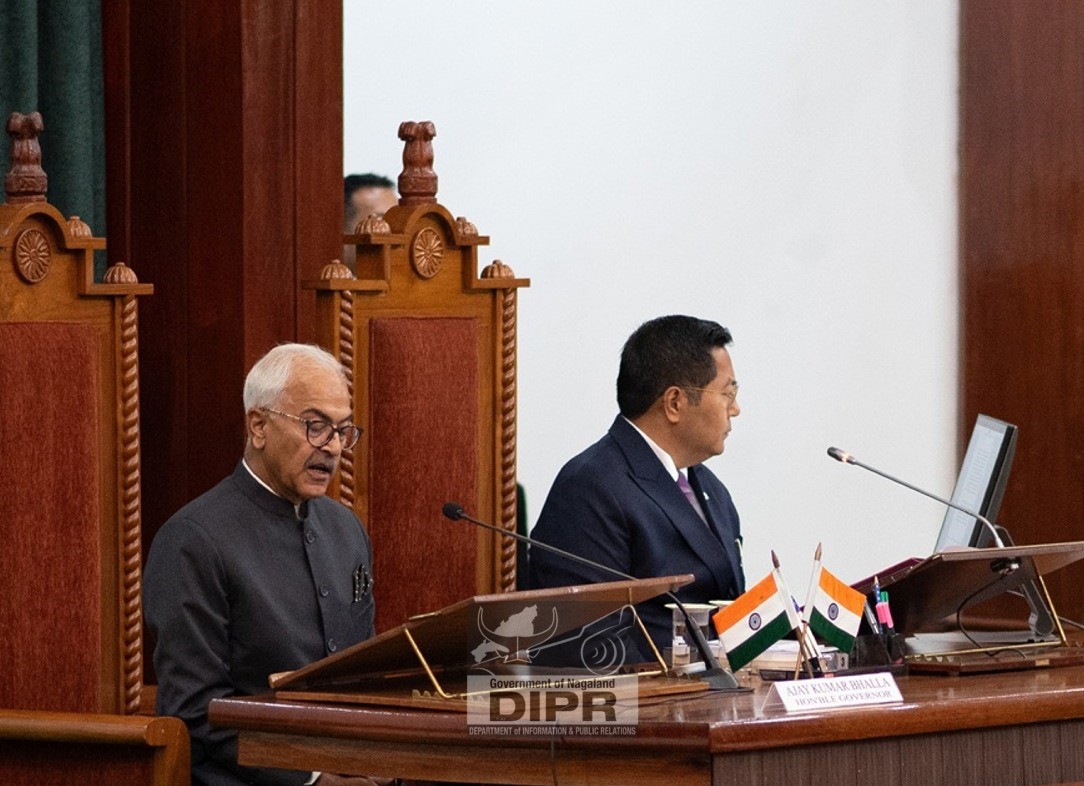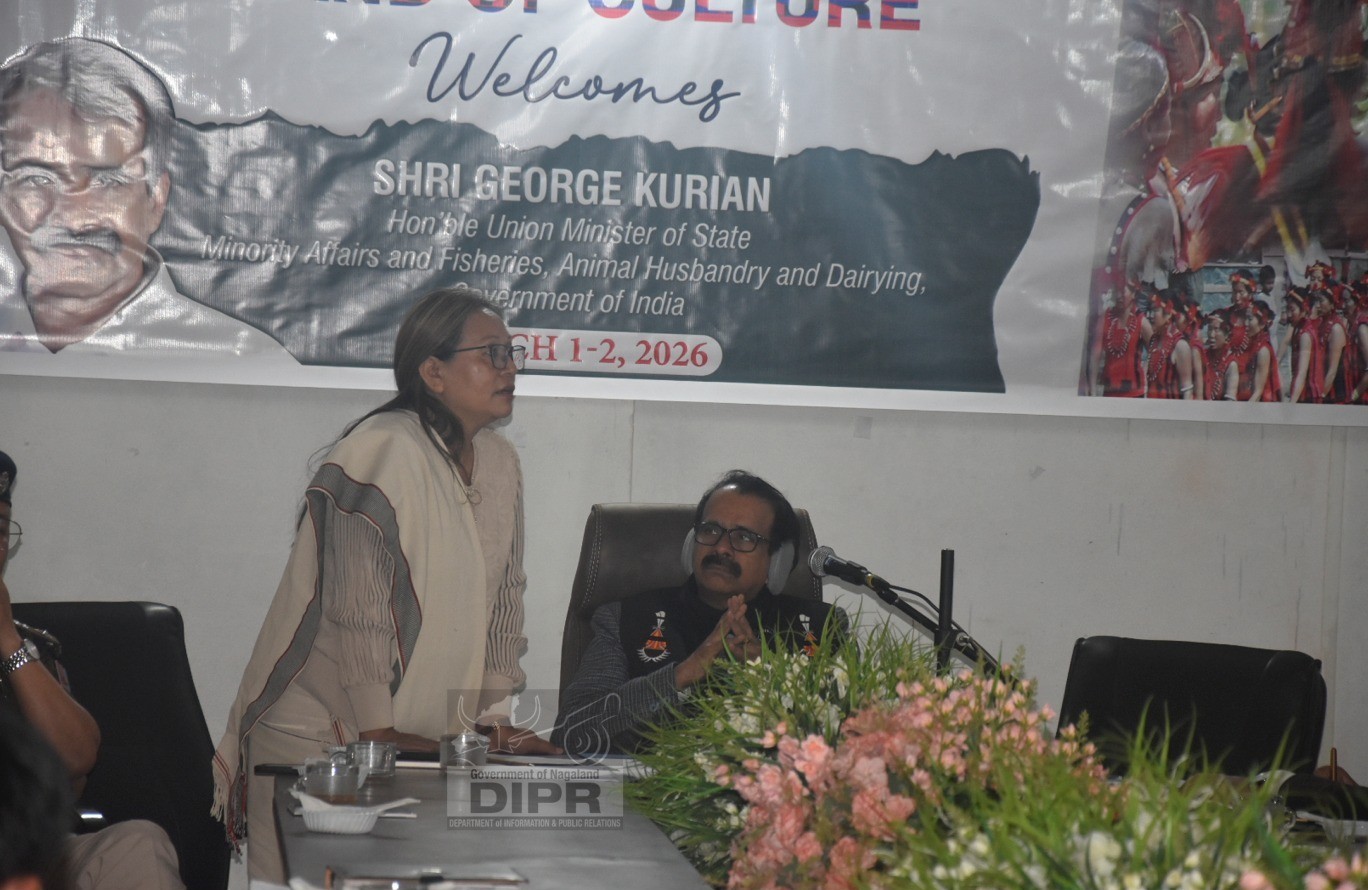The Government of Nagaland represented by the Mon District Administration and Mithun Rural Development Foundation (MRDF) signed a 20-year agreement to set up Mini-Grids in rural Nagaland on 24th January 2022.
The program aims to provide reliable access to electricity for the last mile and promote the adoption of green energy sources, covering 1000 villages in the next seven years.
In a pioneering initiative to deliver last-mile access to electricity in rural areas of the north-eastern state of Nagaland, the Mon District Administration and Mithun Rural Development Foundation (MRDF) inaugurated their first of the three mini-grids at Totokchingha village yesterday. It was inaugurated by N. Thongwang Konyak, MLA, Mon District. The two other solar mini-grids at Chenwetnyu and Longkei will be inaugurated in March 2022. The two organizations recently signed a 20-year agreement to set up Mini-Grids in rural Nagaland in January this year.
Today’s event was attended by Deputy Commissioner, Mon, Thavaseelan K, IAS; General Manager NABARD, Tiakala Ao; Senior Director at Smart Power India, Samit Mitra; Managing Director, MRDF, Vijay Bhaskar; Senior Manager, MRDF, Shyamal Bera along with Director of Operations, MRDF, Sudeshna Mukherjee; Senior Manager, World Resources Institute (WRI), Namrata Ginoya, and MLA, N. Thongwang Konyak among others.
Speaking at the event, Deputy Commissioner, Mon, Thavaseelan K, IAS Nagaland said, “The first three grids have been financed by Smart Power India. These are just the first of the several mini-grids that are going to be installed in the Mon district. This project will make power available 24x7”. He added “NABARD is supporting livelihood interventions. It has set up a revolving fund, which is going to be used to support entrepreneurs. Eventually, this fund would grow bigger to support entrepreneurs across the Mon district.”
Managing Director, MRDF, Vijay Bhaskar said, “In the next 3-4 years, we will install mini-grids for all 130 villages in Mon district. This pilot will be eventually scaled across all villages in Nagaland. We are following a PPP model of partnership – public, private, and people, people being the most important part. Smart Power India has given us a roadmap to do this in the next seven years. We will put all efforts to make this vision a reality.”
General Manager, NABARD, Tiakala Ao stated “We are sponsoring a group of beneficiaries from Totok Chingha, Longkei, and Chenwetnyu where they will be exposed to bio floc and fish farming in another district in march. This training will bring an economic boom to this region as it is going to attract reverse migration enabling rural youth to set up microenterprises here. The future looks promising.”
Senior Director, Smart Power India, Samit Mitra said, “This is a complete village integrated development program that is not only about lighting loads, but also about enterprises, livelihoods, productive loads, all things that contribute to the overall well-being of the community. This is the first time we have undertaken a project with MRDF to expand our footprint of mini-grids in North-East India. We have funded 3-4 plants to initiate the program so that there’s proof of concept on the ground here that other organizations can replicate and scale across Nagaland and beyond. We are hopeful that this program will meet its objective of providing livelihoods and increasing the earning potential of villages in the Mon District.”
The inaugurated mini-grids aim to enable last-mile clean energy access, improve livelihoods, support women entrepreneurs, and increase the GDP of the state while reducing GHG emissions. Smart Power India will play an important role in supporting the entire program framework and value chain including design, delivery, and facilitating financial and market linkages. The WRI will be facilitating the impact measurement of the project.
About Smart Power India (SPI):
SPI, a subsidiary of the Rockefeller Foundation, was established in 2015 to develop and scale sustainable models to accelerate electricity access and spur economic development amongst the rural underserved communities. It is committed to creating knowledge and accountability in the public domain through robust evidence-based research and providing field and analytical support to the Government, private sector, implementers, and other donors in their pursuits for rural electricity access. SPI develops and disseminates relevant knowledge in the rural electricity access and services space to promote research and innovation and partner with policymakers, practitioners, and academic institutions to come up with actionable insights and innovative strategies.
While SPI’s work covers the spectrum of supply and demand-side issues of rural electricity, its focus is the last-mile customer. SPI exchanges knowledge by promoting and facilitating platforms for networking, knowledge sharing and collaborative research, networking, knowledge-sharing, and collaborative research.
About MRDF
Mithun Rural Development Foundation (MRDF) is an SPV floated specifically for rural development of North-East India through the platform of renewable energy-based mini-grids. The first phase of their work is in the 132 villages of Mon District of Nagaland.
(DIPR)


